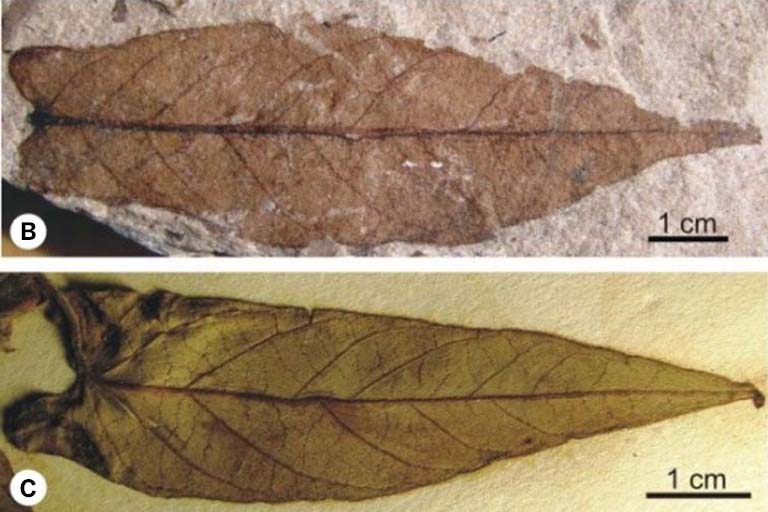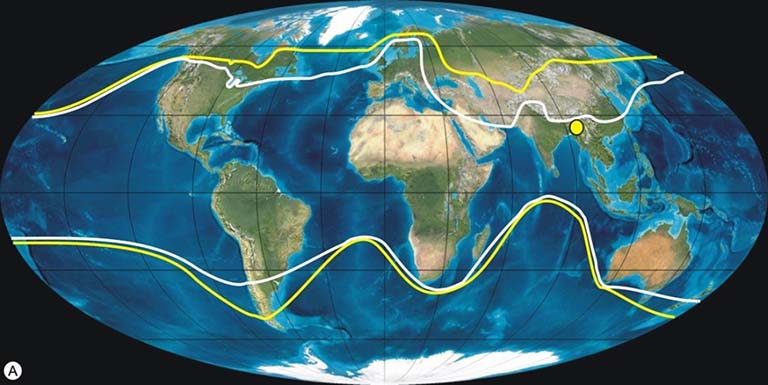[View original story from source]
Sweet potatoes may seem as American as Thanksgiving, but scientists have long debated whether their plant family originated in the Old or New World. New research by an Indiana University paleobotanist suggests it originated in Asia, and much earlier than previously known.
IU Bloomington emeritus professor David Dilcher and colleagues in India identified 57-milion-year-old leaf fossils from eastern India as being from the morning glory family, which includes sweet potatoes and many other plants. The research suggests the family originated in the late Paleocene epoch in the East Gondwana land mass that became part of Asia.
"I think this will change people's ideas," Dilcher said. "It will be a data point that is picked up and used in other work where researchers are trying to find the time of the evolution of major groups of flowering plants."
Previous fossil evidence had suggested the morning glory family may have originated in North America about 35 million years ago. But molecular analyses had supported the idea that it originated earlier and in the Old World. The new research provides evidence for that conclusion.
The discovery also suggests that the morning glory family and the nightshade family, which includes potatoes and tomatoes, diverged earlier than previously thought. Together with the recent, separate discovery of 52-million-year-old nightshade fossils in Argentina, it suggests that morning glories developed in the East and nightshades in the West.



 The College of Arts
The College of Arts